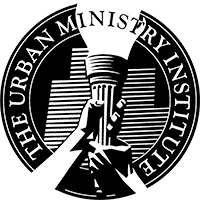 Module 15: The Equipping Ministry
Module 15: The Equipping Ministry
The ministry of the Word of God lies at the heart of the equipping ministry. Paul tells the Ephesians that God has given the Church apostles, prophets, evangelists, and pastors and teachers in order that they might equip the saints for the work of the ministry, for building up the body of Christ (Eph. 4.11-12). There is no precedent for seeing a church as having a single minister: truly, all believers in Christ are ministers of the grace of God, and pastors are assigned to equip them. As believers we hold to the universal priesthood of believers (1 Pet. 2.8-9), in the universal ministry of the gifts of the Spirit (1 Cor. 12.1-11), and the universal functioning of the members of the body of Christ (Romans 12.3-8).
This module focuses on the role of Christian leaders to equip the saints through the ministry of preaching and teaching. We first consider the ministry of proclamation (kerygma) and then highlight dimensions of the ministry of teaching (didache). In each section, we carefully define the critical distinctiveness of the ministries respectively, noting their differences and similarities in nurturing the body of Christ. We explore both as seen in Jesus’ and the apostles’s work, and examine the elements involved in the call to preach and to teach. We pay careful attention to the role that character plays in both, and highlight the ministry of the Holy Spirit in the equipping ministries together. We close our study by providing a tried method for effective preaching and teaching, i.e., how to plan, deliver, and follow up the Word preached and taught. As communicators of the Word of God, we must first establish contact with hearers, communicate the content of the Word clearly and boldly, and make connections with the truth of the message and the lives of the audience, proclaiming all in dependence on the Holy Spirit.
Course Details
Lesson 1: The Ministry of Proclamation: Kerygma (1)
Lesson 2: The Ministry of Proclamation: Kerygma (2)
Lesson 3: The Ministry of Teaching: Didache (1)
Lesson 4: The Ministry of Teaching: Didache (2)
Module Description
The Equipping Ministry
The ministry of the Word of God lies at the heart of the equipping ministry. Paul tells the Ephesians that God has given the Church apostles, prophets, evangelists, and pastors and teachers in order that they might equip the saints for the work of ministry, for building up the body of Christ (Eph. 4.11-12). There is no precedent for seeing a church as having a single minister: as believers we hold to the universal priesthood of believers (1 Pet. 2.8-9), in the universal ministry of the gifts of the Spirit (1 Cor. 12.1-11), and the universal functioning of the members of the body of Christ (Romans 12.3-8). This module focuses on your role through preaching and teaching to equip believers to fulfill their God-given ministries in Christ.
In the first lesson, The Ministry of Proclamation: Kerygma (1), we will define and provide an overview of the concept of preaching. We will look briefly at the distinctiveness of the preaching ministry to teaching, and speak about the development of preaching in the ministry of Jesus and the apostles. We will then look at some of the difficulties we will have to overcome if we are to be the kind of messengers of the Lord we need to be in our very needy day and time. In the second segment of this important lesson we will also examine the call to preach, suggesting that God sends men and women to be his messengers to proclaim his Word. We will then look carefully at the kind of character that we need to have for effective preaching, and look at the content of effective biblical preaching–the biblical truth regarding Jesus Christ and his Kingdom.
Next, we will explore in our second lesson, The Ministry of Proclamation: Kerygma (2), how the Holy Spirit affects every dimension of an effective preaching ministry. We will consider the kind of vessel or preacher the Spirit is most likely to use, and then look at some of the key aspects of the Spirit’s work in the proclamation of the Word. We will also examine the three steps of planning out, delivering, and following up on the preached Word. As communicators of the Word of God, we must first establish contact with hearers, communicate the content of the Word clearly and boldly, and make connections with the truth of the message and the lives of the audience, proclaiming all in dependence on the Holy Spirit.
In the third lesson we will turn our attention to the ministry of teaching. In that teaching session, The Ministry of Teaching: Didache (1), we will provide a definition and overview of the biblical concept of teaching. We will canvass the principles in the teaching ministry recorded in the NT, beginning with Jesus and the apostles, and outline the benefits of the teaching ministry in the Church. We will consider both the distinctives and difficulties associated with the ministry of teaching, and make a plea for us to recover the ministry of teaching in our urban churches in order to build the Kingdom in our communities. As with the preaching ministry, we will analyze the call, character, and content of the teaching ministry, highlighting the central virtues needed for a fruitful ministry. As those entrusted with the Word of God, we must recognize our call to teach, be humble enough to be clear in our presentation of Jesus Christ and his Kingdom, and teach for maturity and fruitfulness in the Church. By understanding the call, the character and the content of the teaching ministry, we will be better able to lead others into the truth.
Finally, in lesson four, The Ministry of Teaching: Didache (2), we will carefully examine how the Holy Spirit impacts and leads us in our ministry of teaching in the Church. The Holy Spirit selects particular members in the Church of Jesus Christ and supplies them with his own anointing, gifting, and call to teach. The called teacher is responsible for using his or her gift with all their energy, being faithful and teachable, while the Holy Spirit employs their gift for the sake of building up the body. We will close our module with a focus on the three steps in designing, delivering, and applying a teaching presentation. To teach our students well we must first establish contact with our students, then communicate the content of the Word of God in our lesson with clarity and boldness. Finally, we strive to make connections with the lives of the students and the truth of the Word of God. To teach is to strive to see individuals obey all that Christ has commanded us, through the leading of the Spirit.
A revolution can occur in urban ministry when gifted and available men and women minister the Word of God in such a way as to raise up a new generation of laborers in the city–those who can care for the hurting, share the truth of God, and declare the Kingdom to their neighbors. Your role in this ministry is urgent and needed.
Reading Assignment
Lesson 1: Reading Assignment
By the conclusion of this lesson, you should have read the following:
Davis, Handbook of Basic Bible Texts, pp. 11-52.
Long, The Witness of Preaching, 2nd edition, preface – p. 98.
Davis, A Sojourner’s Quest , pp. 5-117.
Stevens, The Equipper’s Guide to Every-Member Ministry, pp. 7-74.
Lesson 2: Reading Assignment
By the conclusion of this lesson, you should have read the following:
Davis, Handbook of Basic Bible Texts, pp. 53-102.
Long, The Witness of Preaching, 2nd edition, p. 99-171.
Davis, A Sojourner’s Quest , pp. 119-212.
Stevens, The Equipper’s Guide to Every-Member Ministry, pp. 75-125.
Lesson 3: Reading Assignment
By the conclusion of this lesson, you should have read the following:
Davis, Handbook of Basic Bible Texts, pp. 103-157.
Long, The Witness of Preaching, 2nd edition, p. 172-244.
Davis, A Sojourner’s Quest , pp. 213-294.
Stevens, The Equipper’s Guide to Every-Member Ministry, pp. 127-185.
